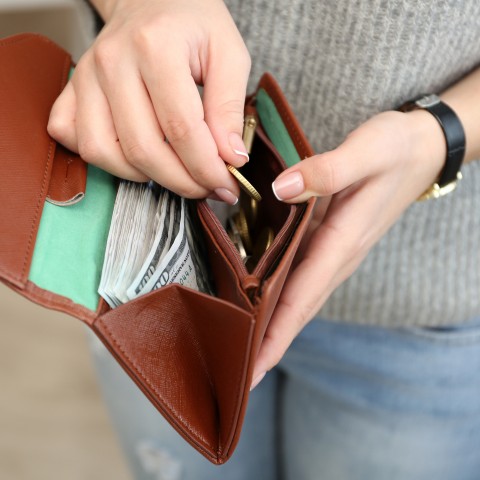
Can you imagine carrying out a conversation in a foreign language without knowing the numbers in that language? I seriously can’t! We deal with numbers in every aspect of our lives. They are not only used in counting, but also when telling the date and the time, dimensions, weight, temperature, distances, prices, your age, phone number, address, and even blood pressure. In short, since they have a wide range of usage from math to history, geography to science, medicine to seismology, it’s impossible to have proper conversations without knowing numbers!
Are you ready to learnTurkish numbers and their usage?

 Table of Contents
Table of Contents
- Basic vocabulary related to numbers
- How to count from 0 to 9?
- How to count from 10 to 100
- Numbers up to Thousand and Beyond
- How to say your age
- How to give your phone number
- How to use numbers when saying prices
- How to use numbers when shopping
- Other usages of numbers
- Discover More About the Turkish Language on TurkishClass101.com
1. Basic vocabulary related to numbers
Let’s start with some vocabulary related to numbers and then we can count and see how Turkish numbers are used in different areas.
| Turkish | English |
| Sayı/Sayılar | Number/Numbers |
| Tam sayılar | Whole numbers |
| Kesirli sayılar | Rational numbers |
| Sıra sayısı | Ordinal number |
| Ondalık sayı | Decimal number |
| Basamak | Digit |
| Pi sayısı | Pi |
| Tam | Whole |
| Yarım/Buçuk | Half |
| Çeyrek | Quarter |
| Saymak | To count |
| Hesaplamak | To calculate |
| Kaça/Kaç para/Ne kadar? | How much? |
| Kaç/Kaç tane? | How many? |
2. How to count from 0 to 9?
| Number | Turkish |
| 0 | Sıfır |
| 1 | Bir |
| 2 | İki |
| 3 | Üç |
| 4 | Dört |
| 5 | Beş |
| 6 | Altı |
| 7 | Yedi |
| 8 | Sekiz |
| 9 | Dokuz |
In Turkish, when a noun is preceded by a number greater than one, the noun does not take the plural suffix, -lar or -ler. Instead, it retains its singular form because the number indicates that it’s plural.
Example:
- Bıçak – “Knife”
- Bir bıçak – “One knife”
- Yedi bıçak – “Seven knives”
3. How to count from 10 to 100
A- Teens
| Number | Turkish |
| 11 | On bir |
| 12 | On iki |
| 13 | On üç |
| 14 | On dört |
| 15 | On beş |
| 16 | On altı |
| 17 | On yedi |
| 18 | On sekiz |
| 19 | On dokuz |
B- Tens
| Number | Turkish |
| 10 | On |
| 20 | Yirmi |
| 30 | Otuz |
| 40 | Kırk |
| 50 | Elli |
| 60 | Altmış |
| 70 | Yetmiş |
| 80 | Seksen |
| 90 | Doksan |
Let’s take a look at some examples:
· 12: On iki
· 21: Yirmi bir
· 34: Otuz dört
· 43: Kırk üç
· 56: Elli altı
· 65: Altmış beş
· 78: Yetmiş sekiz
· 87: Seksen yedi
· 99: Doksan dokuz
4. Numbers up to Thousand and Beyond
Now that you learned the Turkish numbers 1-100, let’s continue with larger numbers.
A- Hundreds
In Turkish, if the 3-digit number starts with a “one”, you never say “one hundred”; you just say “yüz”, meaning “hundred.” To form the numbers from 200 to 900, all you need to do is to place a number from 2-9 in front of the word “yüz”, which is “hundred” in English.
| Number | Turkish |
| 100 | Yüz |
| 200 | İki yüz |
| 300 | Üç yüz |
| 400 | Dört yüz |
| 500 | Beş yüz |
| 600 | Altı yüz |
| 700 | Yedi yüz |
| 800 | Sekiz yüz |
| 900 | Dokuz yüz |
Here are some examples for you:
· 127: Yüz yirmi yedi
· 256: İki yüz elli altı
· 334: Üç yüz otuz dört
· 468: Dört yüz altmış sekiz
· 541: Beş yüz kırk bir
· 679: Altı yüz yetmiş dokuz
· 715: Yedi yüz on beş
· 893: Sekiz yüz doksan üç
· 922: Dokuz yüz yirmi iki
B- Thousands
The thousands work the same way. In Turkish, if the 4-digit number starts with a “one”, you never say “one thousand”; you just say “bin”, meaning “thousand.” To form the numbers from two thousand to nine thousand, all you need to do is to place a number from 2-9 in front of the word “bin”, which is “thousand” in English.
Please also note that whole numbers are separated with a “dot” and decimal numbers with a “comma” in Turkish.
Examples:
· 1.000 – Bin (“1,000 – One thousand”)
· 1,50 – Bir buçuk (“1.5 – One point five”)
Numbers in Turkish | Turkish |
| 1.000 | Bin |
| 2.000 | İki bin |
| 3.000 | Üç bin |
| 4.000 | Dört bin |
| 5.000 | Beş bin |
| 6.000 | Altı bin |
| 7.000 | Yedi bin |
| 8.000 | Sekiz bin |
| 9.000 | Dokuz bin |
Below are some examples:
· 1561: Bin beş yüz altmış bir
· 2352: İki bin üç yüz elli iki
· 3843: Üç bin sekiz yüz kırk üç
· 4124: Dört bin yüz yirmi dört
· 5675: Beş bin altı yüz yetmiş beş
· 6496: Altı bin dört yüz doksan altı
· 7787: Yedi bin yedi yüz seksen yedi
· 8938: Sekiz bin dokuz yüz otuz sekiz
· 9019: Dokuz bin on dokuz
C- Beyond One Thousand
Here are some numbers with many zeros:
Numbers in Turkish | Turkish |
| 10.000 | On bin |
| 100.000 | Yüz bin |
| 1.000.000 | Bir milyon |
| 1.000.000.000 | Bir milyar |
| 1.000.000.000.000 | Bir trilyon |
| 1.000.000.000.000.000 | Bir katrilyon |
5. How to say your age
Saying your age is one of the basic information you provide when you introduce yourself.
As in some other countries, it is considered as private and sensitive information by some women in Turkey. Therefore, I recommend you to be careful when asking women about their ages in Turkey.
Q: Kaç yaşındasınız? (“How old are you?”) (Formal)
A: Kırk bir yaşındayım. (“I’m forty-one years old.”) (Literally: I’m in the age of forty-one.)
Q: Kaç yaşındasın? (“How old are you?”) (Informal)
A: Kaç gösteriyorum? (“How old do I look?”)
Q: Otuz altı. (“Thirty-six.”)
A: Teşekkürler, aslında elli yaşındayım. (“Thanks, actually I am fifty years old.”)

6. How to give your phone number
When you dial a phone number within Turkey, you first dial a “zero” and then either the 3-digit code of the city if you are calling a landline or the 3-digit code of the mobile phone provider. Then you dial the 7-digit number. If you are trying to call a Turkish number out of Turkey, then you should first dial the country code,”90” for Turkey and then the whole number (10 digits) without dialing the “0.”
Ex:
0-532-777-77 77 (Within Turkey)
90-532-777-77 77 (Outside of Turkey)
Formal ways of asking a phone number:
· Telefon numaranızı alabilir miyim? (“May I have your phone number?”)
· Telefon numaranızı sorabilir miyim? (“May I ask your phone number?”)
· Telefon numaranızı verebilir misiniz? (“Can you give your phone number?”)
· Telefon numaranızı söyleyebilir misiniz? (“Can you tell your phone number?”)
Let’s say our mobile number is: 0-532- 395- 56 56
Some people will say the zero, some won’t. Here are the two ways you can read it:
· Sıfır, beş yüz otuz iki, üç yüz doksan beş elli altı elli altı. (“Zero, five hundred thirty two, three hundred ninety five, fifty six, fifty six.”)
· Beş yüz otuz iki, üç yüz doksan beş elli altı elli altı. (“Five hundred thirty two, three hundred ninety five, fifty six, fifty six.”)
Informal ways of asking a phone number:
· Cep numaran kaç? (“What is your mobile number?”)
· Telefon/cep numaranı alabilir miyim? (“May I have your phone/mobile number?”)
· Telefon/cep numaranı sorabilir miyim? (“May I ask your phone/mobile number?”)
· Telefon/cep numaranı verebilir misin? (“Can you give your phone/mobile number?”)
· Telefon/cep numaranı söyler misin? (“Can you tell your phone/mobile number?”)
Let’s say our mobile number is: 0-542-666-66 66
Here are the two ways you can read it:
· Sıfır, beş yüz kırk iki, altı yüz altmış altı, altmış altı, altmış altı. (“Zero, five hundred forty-two, six hundred sixty six, sixty six, sixty six.”)
· Beş yüz kırk iki, altı yüz altmış altı, altmış altı, altmış altı. (“Five hundred forty-two, six hundred sixty six, sixty six, sixty six.”)

You can click here to check Turkish phone words and phrases.
7. How to use numbers when saying prices
If you are living in Turkey or visiting Turkey, in any case, you will be buying something; be it a pack of gum or a gift for your beloved one. Let’s see how you can use Turkish numbers when talking about prices.
Q: Bu elbise ne kadar? (“How much is this dress?”)
A: İki yüz kırk lira. (“Two hundred forty liras.”)
Q: İki yüz lira olur mu? (“Would it be two hundred liras?”)
A: Maalesef olmaz. (“Unfortunately, no.”)
As you may guess from the example, you might try negotiating in some stores in Turkey.
Q: Peynirin kilosu ne kadar? (“How much is a kilo of cheese?”)
A:Seksen beş lira elli kuruş. (“Eighty-five lira fifty cents.”)

8. How to use numbers when shopping
Below are some examples that will show you how you can use Turkish numbers as quantities when shopping:
· Bir kutu süt istiyorum. (“I’d like a box of milk.”)
· İki yüz elli gram peynir almak istiyorum. (“I’d like to buy 250 grams of cheese.”)
· Yarım kg et alacağım. (“I will buy half a kilo of meat.”)
· İki şişe su rica edeyim. (“Two bottles of water, please.”)
· Beş paket sigara istiyorum. (“I’d like five packs of cigarrettes.”)
9. Other usages of numbers
Now, let’s see how else we can use numbers:
A- Percentage
In Turkish, the way percentages are written and read are different than English. Percentage sign is written and read before the number. Here are some examples:
· %50 – Yüzde elli (“50% -“Fifty percent”)
· %82 – Yüzde seksen iki (“82% – “Eighty two”)
B- Weather
Turkey uses Celsius scale. Only the degree is pronounced. Celsius is not mentioned when talking about the degrees.
· Bugün hava kaç derece? (“What is the temperature today?”)
· 30o – Otuz derece (“Thirty degrees”)
C- Dimensions
Turkey uses the metric system and below is an example showing how to say dimensions in Turkish:
· En otuz cm, boy elli iki cm, yükseklik otuz dört cm. (“Width thirty cm, length fifty-two cm, height thirty four cm.”)
D- Weight
Here are some examples for your reference:”
· 70,5 kg – Yetmiş buçuk kg (“70.5 kg”)
· 1200 gr – Bin iki yüz gr (“1200 gr”)
· 136,5 ton – Yüz otuz altı buçuk ton (“136.5 tons”)
I’d like to point out once again that commas are used to show the decimal places in Turkish.

10. Discover More About the Turkish Language on TurkishClass101.com
You’ve now learnt a lot about Turkish numbers, the Turkish number system, and the Turkish numbers’ pronunciation. You have also learnt how to count Turkish numbers 1-1000 and how to use them in different cases.
Best way to learn Turkish numbers in-depth is to check TurkishClass101, which has numerous audio recordings, tons of vocabulary lists and free resources including the dictionary you can refer to, in order to get a better grasp of Turkish language and the culture.
Don’t forget that there is also MyTeacher, which is the premium service of TurkishClass101 that you can use to practice 1-on-1 with a private teacher.
Do you know what is also good about it? You can download the app for free and use it wherever you are.
Last but not the least; please continue to provide us feedback about all the resources provided at TurkishClass101!










